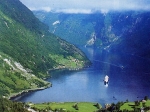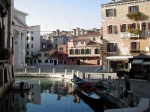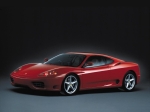
 The Grand Duchy of Luxembourg is a small landlocked state in the north-west of the continental European Union , bordered by France , Germany and Belgium .
The Grand Duchy of Luxembourg is a small landlocked state in the north-west of the continental European Union , bordered by France , Germany and Belgium .
Geography
Luxembourg is one of the smallest countries in Europe . It is ranked 166th in size of all the countries of the world. The country is about 2,586 km² in size.
The north of the country, part of the Ardennes , has hills and low mountains, with the Buurgplaz as the highest point at 559 m. The rest of the country is also hilly.
Luxembourg's eastern border is formed by three rivers, the Moselle , the Sûre and the Our.
The capital, Luxembourg, is the largest city of the country. Other important cities are Esch-sur-Alzette (or just Esch), to the south-west of the capital, and Echternach , against the German border in the east.
Economy
The stable, high-income economy features moderate growth, low inflation, and low unemployment. The industrial sector, until recently dominated by steel, has become increasingly more diversified to include chemicals, rubber, and other products. During the past decades, growth in the financial sector has more than compensated for the decline in steel. Services, especially banking, account for a growing proportion of the economy. Agriculture is based on small family-owned farms. Luxembourg has especially close trade and financial ties to Belgium and the Netherlands, and as a member of the EU, enjoys the advantages of the open European market. Luxembourg possesses the highest GDP per capita in the world.
Culture
The linguistic situation in Luxembourg is characterized by the practice and the recognition of three official languages: French, German and Luxemburgish.
The plurilingualism of Luxembourg results from the coexistence of two ethnic groups, a Romance and a Germanic one.
In the beginnings of the country French enjoyed the greatest prestige, therefor the privileged use of French as official and administrative language. German was used in the political field to comment on the laws and the ordinances in order to make them comprehensible to everyone. At primary school, teaching was limited to German, while French was taught in secondary education.
The law of July 26, 1843 reinforced bilingualism by introducing the teaching of French in primary school.
Luxemburgish ("Lëtzebuergesch"), a francique dialect, native of the Moselle region, was introduced in primary school in 1912.
Until 1984, the official use of the languages was based on the grand-ducal decrees of 1830, 1832 and 1834, which allowed the free choice between German and French. French was preferred in the administration. Luxemburgish had no official status at all.
The constitutional revision of 1948 gave the legislator the possibility of regulating the language by law. On February 24, 1984 a law, passed by the constitutional chamber, made Luxemburgish the national language. Furthermore this law recognized the three languages of Luxembourg (Luxemburgish, French and German) as official languages. French remains the language of the legislation, which is due to the fact that the Napoleonean civil code is applied in Luxembourg.
Luxemburgish is taught at school after teaching French and German. Moreover, Luxemburgish is taught only one hour per week at secondary school and only in the first years. In secondary school besides German, French and Luxembourgish, English and a choice out of Latin, Spanish or Italian is taught. At university level, bilingualism makes it possible to luxembourgish students to continue their higher education in French-speaking, German-speaking or anglophone countries.
At the political level, Luxembourg contributed to the creation of Europe linked with Robert Schuman. The good control of two major languages in Europe made it possible for Luxembourg to be easily integrated into the creating process of the European Community and to become a unifying and progressive factor of it.
German is the primary language of the press. Public service information is in French, German, and sometimes English or Portuguese , since roughly 10% of the population is Portuguese.




